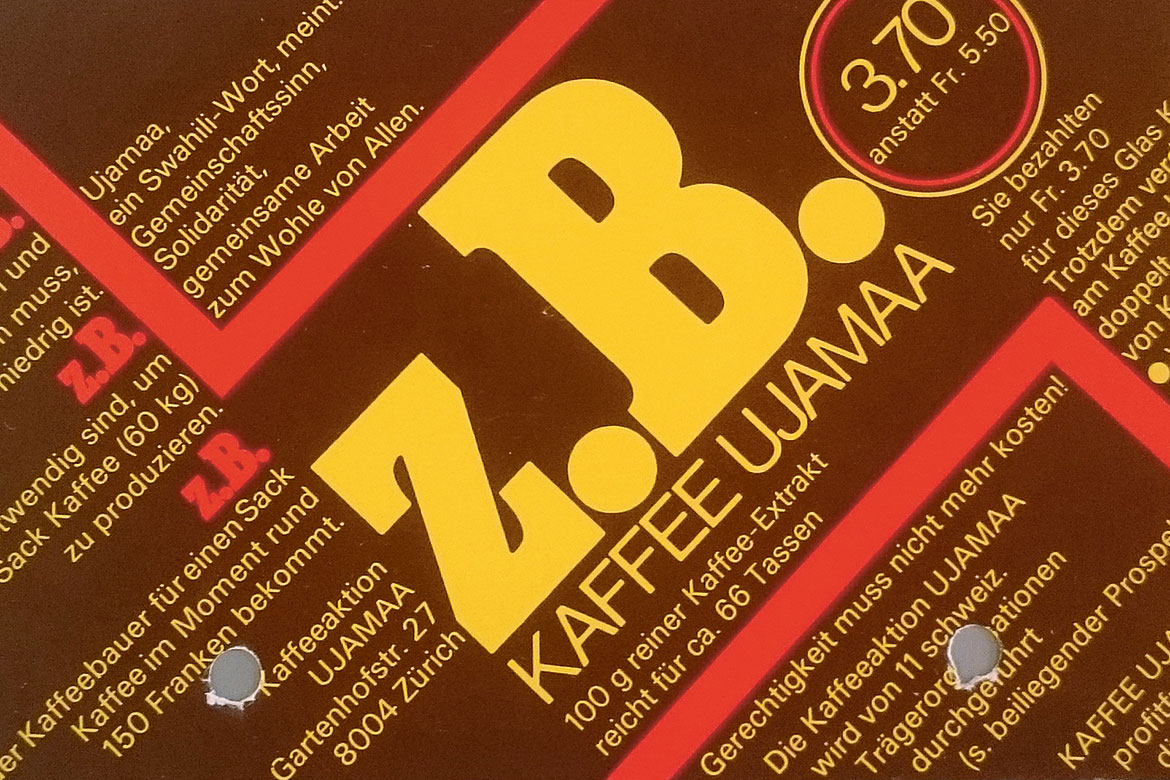Fair-trade concepts in flux
The term ‘fair trade’ has changed in meaning from the sense first attributed to it by activists in the 1960s.

This label was used in 1973 by the Bern Declaration (today ‘Public Eye’) to sell fair-trade coffee. | Swiss Social Archive, Zurich
Fair-trade products are a standard feature of the Swiss retail business today. But the actual meaning of ‘fair trade’ has changed dramatically since the term was coined in the 1960s.
This is demonstrated in the research of the economic historian Andrea Franc of the University of Basel. She has been examining texts written by NGOs between 1964 and 1984, including prominent examples such as the Bern Declaration and its British equivalent, the Haslemere Declaration. “In the 1960s, fair-trade activists campaigned for the industrialisation of developing countries and to have the markets of the West opened up to their products”, says Franc.
The 1973 oil crisis was followed by a global food crisis in 1974, and this prompted a change in the approach of the fair-trade activists. Their goal was no longer to get developing countries unobstructed access to global markets; instead, their focus shifted to local production and protecting small farmers in the developing world.
This development continues to have an impact, up to the present day. “For example, there are chocolate factories in Ghana that can’t export their products to Europe on account of trade barriers”, explains Franc. Focussing on a small basket of tropical commodities that are typically sold in Europe under the ‘Fair Trade’ banner leads us to ignore the competitors in other developing countries.
These findings prove to Franc that there simply isn’t a patent remedy that could solve all the injustices of the global economy. “As an initial step towards fair global trade, we perhaps need to show some humility in the face of its complexity”.




